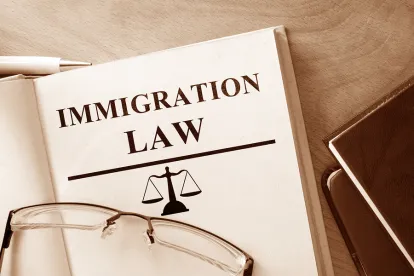The United States Citizenship Act was introduced on February 18, 2021. Sponsored in the House by Representative Linda Sanchez (D-Calif) and in the Senate by Senator Bob Menendez (D-N.J.), the bill calls for broad immigration reform, including creating paths to citizenship for undocumented immigrants, expanding the number of available visas, and creating more access for highly skilled workers.
Much of the focus has been on the proposed eight-year path to citizenship for “Dreamers,” TPS beneficiaries, and the 11 million undocumented individuals currently living in the United States. Other highlights include changes to asylum policies and increased aid to Central America to address root causes of migration. Major changes have also been proposed regarding on immigrant and nonimmigrant employment-related visas.
For immigrant visas, the bill tries to balance the economic benefits of increased immigration with concerns for U.S. workers. Key proposals include:
-
Increasing the number of employment-based green cards available each year from 140,000 to 170,00 and adding left-over visas from FY 1992 through FY 2020 into the mix;
-
Eliminating numerical limitations for those whose immigrant visa petitions have been approved and who have been waiting to adjust status for more than 10 years;
-
Eliminating per country caps altogether beginning in FY 2022;
-
Exempting U.S. doctoral STEM graduates from the numerical limitations;
-
Creating a pilot program for regional economic development that would allow for an additional 10,000 immigrants per year based on localized economic development strategies; and
-
Authorizing the Department of Homeland Security (DHS) and the Department of Labor (DOL) to temporarily reduce the admission of EB-2 and EB-3 immigrants during times of high unemployment in particular labor markets or geographic areas.
Similarly, key provisions regarding nonimmigrant, temporary work visas include:
-
Authorizing employment for all H-4 spouses and children;
-
Authorizing one-year extensions of work authorization for those in F-1, H-1B, L, and O status if their immigrant visa petition or labor certification authorization has been pending for more than one year;
-
Exempting F-1 students at institutions of higher education from dual intent restrictions; and
-
Authorizing DHS in conjunction with DOL to prioritize the distribution of H-1B visas based upon the offered wage – a wage hierarchy as has already been proposed by regulation.
Recognizing that several recent attempts at passing a comprehensive immigration bill have not made it out of Congress, initial discussions include a “multiple trains” strategy – prioritizing pieces of the bill to move through Congress – while continuing to push for the broader overhaul.
President Joe Biden has noted that he has “laid out [his] vision for what it will take to reform our immigration system and [he] look[s] forward to working with leaders in Congress to this done.”
As the negotiations in Congress and with the White House move forward, we will provide updates regarding the aspects of the bill that are likely to succeed.






 />i
/>i
